Related Research Articles
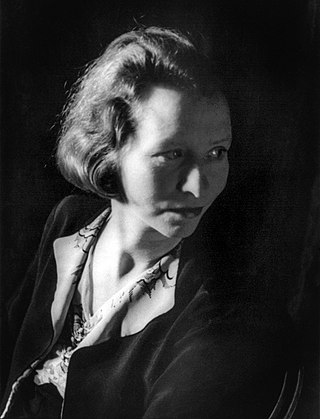
Edna St. Vincent Millay was an American lyrical poet and playwright. Millay was a renowned social figure and noted feminist in New York City during the Roaring Twenties and beyond. She wrote much of her prose and hackwork verse under the pseudonym Nancy Boyd.

Franklin Pierce Adams was an American columnist known as Franklin P. Adams and by his initials F.P.A.. Famed for his wit, he is best known for his newspaper column, "The Conning Tower", and his appearances as a regular panelist on radio's Information Please. A prolific writer of light verse, he was a member of the Algonquin Round Table of the 1920s and 1930s.

Daniel Mark Epstein is an American poet, dramatist, and biographer. His poetry has been noted for its erotic and spiritual lyricism, as well as its power—in several dramatic monologues—in capturing crucial moments of American history. While he has continued to publish poetry he is more widely known for his biographies of Nat King Cole, Edna St. Vincent Millay, Bob Dylan and Abraham Lincoln, and his radio plays, "Star of Wonder," and "The Two Menorahs," which have become holiday mainstays on National Public Radio.
The Dial was an American magazine published intermittently from 1840 to 1929. In its first form, from 1840 to 1844, it served as the chief publication of the Transcendentalists. From the 1880s to 1919 it was revived as a political review and literary criticism magazine. From 1920 to 1929 it was an influential outlet for modernist literature in English.
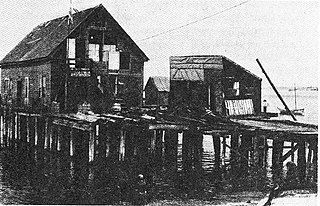
The Provincetown Players was a collective of artists, writers, intellectuals, and amateur theater enthusiasts. Under the leadership of the husband and wife team of George Cram “Jig” Cook and Susan Glaspell from Iowa, the Players produced two seasons in Provincetown, Massachusetts and six seasons in New York City, between 1916 and 1922. The company's founding has been called "the most important innovative moment in American theatre." Its productions helped launch the careers of Eugene O'Neill and Susan Glaspell, and ushered American theatre into the Modern era.

Alfred Francis Kreymborg was an American poet, novelist, playwright, literary editor and anthologist.
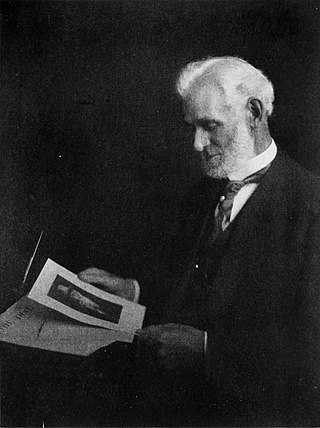
Francis Fisher Browne was an American editor, poet, and literary critic. Browne was one of the founders and later, an honorary member of the Chicago Literary Club, the Caxton Club (Chicago) and The Twilight Club of Pasadena (California). He served as the Chairman of Committee on Congress at the World's Congress Auxiliary of the Columbian Exhibition, in the summer of 1893.
George Graf Dickerson, Jr. was an American actor, writer, and poet.

Steepletop, also known as the Edna St. Vincent Millay House, was the farmhouse home of Pulitzer Prize-winning poet Edna St. Vincent Millay and her husband Eugen Jan Boissevain, in Austerlitz, New York, United States. Her former home and gardens are maintained by the Edna St. Vincent Millay Society, a nonprofit organization that also holds the rights to the poet's intellectual property. Steepletop was declared a National Historic Landmark on November 11, 1971.
Nancy Lee Milford was an American biographer. She was noted for her biographies on Zelda Fitzgerald and Edna St. Vincent Millay.

Only Yesterday is a 1933 American pre-Code drama film about a young woman who becomes pregnant by her boyfriend before he rushes off to fight in World War I. It stars Margaret Sullavan and John Boles.
Reedy's Mirror was a literary journal in St. Louis, Missouri in the fin de siècle era. It billed itself "The Mid-West Weekly."
Abbie Huston Evans was an American poet and teacher.
George Rolfe Humphries was a poet, translator, and teacher.
Arthur Harold Moss was an American expatriate poet and magazine editor.
A bibliography of Edna St. Vincent Millay.
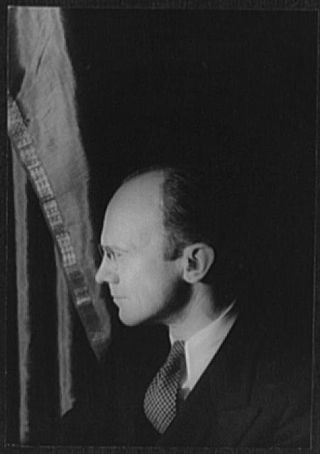
The King's Henchman is an opera in three acts composed by Deems Taylor to an English language libretto by Edna St. Vincent Millay. The libretto is based on both legend and historical figures documented in the Anglo-Saxon Chronicle including Edgar the Peaceful, Elfrida of Devon, and Dunstan. It tells the story of a love triangle between King Eadgar, his henchman Aethelwold, and Aelfrida, daughter of the Thane of Devon. It premiered on 17 February 1927 at the Metropolitan Opera in New York City in a performance conducted by Tullio Serafin.
"Renascence" is a 1912 poem by Edna St. Vincent Millay, credited with introducing her to the wider world, and often considered one of her finest poems.
"I, being born a woman and distressed" is a poem by American author Edna St. Vincent Millay. The poem appeared in Millay's 1923 collection The Harp-Weaver and Other Poems. The first-person speaker of the fourteen-line, Italian sonnet addresses a potential lover. She confesses to an intense physical attraction but denies the possibility of any emotional or intellectual connection.
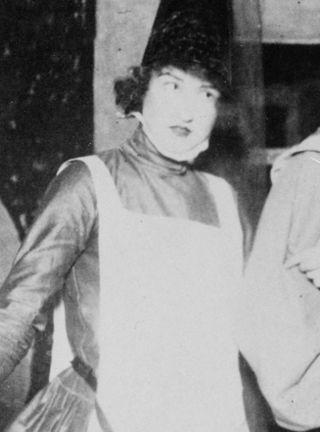
Norma Millay was an American singer and actress, and sister of the poet and playwright Edna St. Vincent Millay. Born in Rockland, Maine to Cora Lounella Buzelle and Henry Tolman Millay, Norma Millay was one of three sisters who were all, due to their parents’ divorce, brought up by their mother. Having been a writer of poetry herself, Cora Millay ensured the presence of art and music in the Millay household, which became a vital part of the upbringing of the three sisters. Norma Millay would go on to perform with the Provincetown Players and appear on Broadway. She married painter and actor Charles Ellis, but did not use his surname.
References
- ↑ Browne, Francis Fisher (1929). Francis Fisher Browne (ed.). The Dial. Vol. 86. Jansen, McClurg.
- ↑ Cook, Harold Lewis (1919-05-01). "Would that I knew: The future of an ideal". Harper's Magazine. Vol. May 1919. ISSN 0017-789X . Retrieved 2023-02-02.
- ↑ "Harold Lewis Cook | The Nation". Archived from the original on 2012-10-14.
- ↑ Cook, Harold Lewis (1938-04-30). "In Time of Civil War". The New Yorker. Retrieved 2023-02-02.
- ↑ "January 1936 : Poetry Magazine". www.poetryfoundation.org. Retrieved 2016-04-10.
- ↑ Milford, Nancy (2002-09-01). Savage Beauty: The Life of Edna St. Vincent Millay . Random House Trade Paperbacks. ISBN 9780375760815.
- ↑ Yagoda, Ben (2000-01-01). About Town: The New Yorker and the World it Made. Simon and Schuster. ISBN 9780684816050.